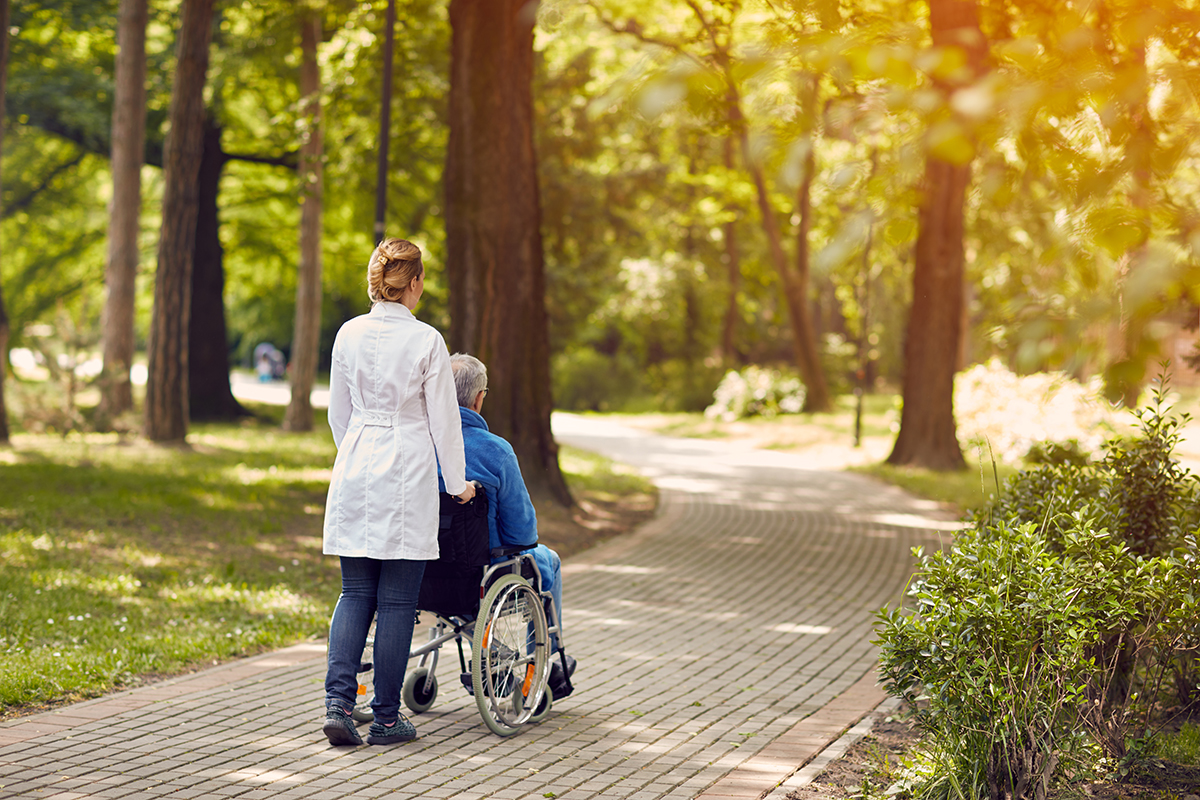Table of contents
Live-in caregivers. According to the census and statistics, the types of households that have multiplied the most are those with a non-family member residing in the home. That is to say, statistics are now showing that there is a growing phenomenon of hiring live-in carer. Nomenial explores this topic:
Our Live-in Caregivers
It must be understood, that live-in carers are professionals in home care who also make a very commendable effort, since on many occasions they leave their family, their city and their home behind. It is important to be aware of this situation. And for this reason, at Nomenial we define very well what the rights and duties of the live-in caregivers are, although sometimes it is very difficult.
What is a Live-in Caregiver?
They are a home care professional who has obtained training and experience in the sector that concerns us. The caregiver lives in the user’s home and helps him/her day by day to perform the basic tasks of daily life.
What is NOT a live-in caregiver?
In-house caregivers are not maids or assistants.
It is true that the law allows a minimum of 2 hours a day for rest, to make the main meals or to make some personal management. But it is not acceptable that the live-in caregiver is active for 15 hours. No human being can stand this.
The home as a workplace is a confusing environment. That is why it is important to create and agree on routines regarding tasks. Household cleaning, lunches, lunches and dinners, walks and personal grooming. All these tasks must be defined with their periodicity: daily, weekly or monthly.
As for cleaning, it is necessary to establish the periodicity by zones. The living room, the kitchen, the toilets… all of them must be defined to avoid misunderstandings.
In short, the live-in carer can not be all the time performing household tasks.
In addition, a live in carer is not a family member, a student or someone who does not have the experience, training and guarantees to exercise this profession.
All professional live-in caregivers have common personality elements and are mature, responsible and respectful people.
What do Live-in Caregivers offer?
Due to our extensive experience in social work and human resources, Nomenial’s team has completed more than 20 years of work in associations, voluntary work and social projects. As for the home help service and specifically, the live-in staff, we have seen all the positive aspects that live-in caregivers bring with them.
– The tranquility, security and confidence for the person and their families, who know that they are there.
– Helping to keep the house of the senior citizens or ill person in order.
– Help in the preperation of meals, for the good of the senior citizens or ill person.
– Walks and shopping, tasks that include leaving the home, all under an umbrella of security.
Unfortunately, there are times when the tasks are not well defined and all this value stops is not achieved. This creates a negative dynamic that tends more towards disrespect and disapproval. For this reason, we have experienced many times that even if the older person has “bad gestures” with the caregiver, the support of the family becomes decisive for the caregiver to move forward.
Live-in Caregiver: Rights and Responsibilities
The working relationship between families and caregivers goes through the care link. It is very important that the concept of the live-in caregiver is subject to a series of lines that mark this relationship.
Hiring under the umbrella of legality and the agreement allows for quality and a series of standards and rights. In addition to avoiding the danger of a fine.
As we mentioned before, it is necessary to fix 2 hours a day for meals, and/or breaks. These hours can be inside or outside the home, depending on each case, but it is important to set these 2 hours because they are the minimum rights.
As for the family’s duties:
– Accommodation. They must provide a private room that meets the basic conditions. That is to say, to offer free and quality accommodation.
– Food. As we pointed out before, the family must bear the cost of food and the caregiver must eat the same food as the family.
Overnight stays of the live-in caregivers
The nightly hours of the caregivers are only without vigilance, i.e to sleep. The caregiver who must offer vigilance at night cannot be subject to a live-in regime, since she also has activity during the day.
This would require hiring mainly two caregivers and managing them in shifts.
Caregivers’ holidays
By contract they have all the holidays of the year free. However, there are households in which senior citizens or dependent person needs uninterrupted care. In this sense there are several alternatives:
– The family spends the holidays with the senior citizen.
– The caregiver and the family come to an agreement and will be paid extraordinarily and apart from the holiday, always with a higher amount than the ordinary.
– Another special caregiver is hired for the holiday.
In case the caregiver works on a holiday, he or she can also offer themelves as days off in addition to the vacations. So if they work on a holiday they would have 2 ordinary working days off.







